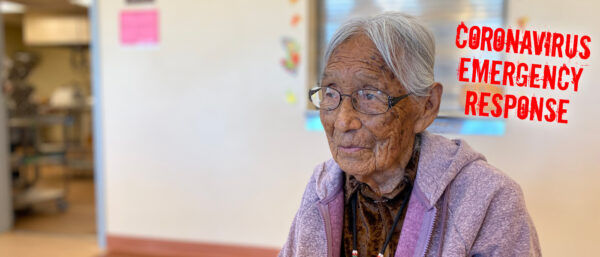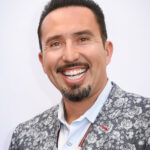
- Details
- By Native News Online Staff
ADDISON, Texas — The Partnership With Native Americans (PWNA) today recognized several charities, organizations and individuals for donations of more than $4 million for COVID-19 relief efforts for Native Americans tribes.
The Addison, Texas-based nonprofit, which collaborates with program partners on reservations, said the donations will help them provide aid and emergency services to Native Americans living on remote, isolated and impoverished reservations.
 PWNA President and CEO Joshua Arce.
PWNA President and CEO Joshua Arce.
The coronavirus pandemic has “overwhelmed Indian Country,” according to PWNA.
Coronavirus risk is higher for Native Americans – especially on remote reservations where overcrowded housing makes social distancing less feasible.
Many Native American communities lack adequate health care and regularly face shortages of food, water and other supplies that are vital to sheltering at home to minimize the spread of the virus.
Several major donors have responded to this humanitarian emergency with generous contributions to PWNA:
- Latter-day Saint Charities, the humanitarian arm of The Church of Jesus Christ of Latter-day Saints, made a significant donation to PWNA's COVID-19 response and nutrition support to tribes, as part of a $5.5 million contribution to relief projects around the globe.
- Kliff Kingsbury, head coach of the Arizona Cardinals, made a $50,000 personal donation after learning about the high infection rates impacting the Navajo Nation.
- Kate Farms, a plant-based, organic medical nutrition company provided 10,000 meal replacement shakes for Elders of Navajo and other Southwest tribes impacted by COVID-19, as part of its 250,000-meal commitment to serving those most in need.
- Catena Foundation, a private grantmaking foundation, donated $100,000 to support COVID-19 response efforts to tribes in the Four Corners and Colorado River Basin area. \
"We're incredibly grateful to the many individuals and organizations who sincerely stepped up to help Native communities grappling with the spread of the coronavirus," Joshua Arce, president and CEO of PWNA, said in a statement. "These donations have been instrumental to our ongoing emergency response and we cannot thank donors enough for helping us ensure Native Americans are not forgotten during the pandemic."
PWNA has also received contributions from long-time individual donors and more than a dozen other groups, including:
- Arizona Community Foundation
- Center for Disaster Philanthropy
- Hoch Drug Foundation
- Lush Cosmetics
- Museum of Native American History
- South Dakota Community Foundation
- Synchrony Financial
- Verizon
- Walmart Foundation
In-kind donations of food and water, sanitizers, infant products, personal care products and PPE have also been made by:
- Baby2Baby
- Boomer Naturals
- Convoy of Hope
- Feed The Children
- Global PPE
- Matthew 25: Ministries
To learn more or donate, please visit NativePartnership.org/COVID or call 800-416-8102.
More Stories Like This
Native News Weekly (August 25, 2024): D.C. BriefsNavajo Nation Mourns the Passing of Former Vice President Rex Lee Jim
Deb Haaland Earns Endorsement From Communications Workers of America Local 7076
University Soccer Standout Leads by Example
Two Native Americans Named to Democratic Congressional Campaign Committee's“Red to Blue” Program
Help us defend tribal sovereignty.
At Native News Online, our mission is rooted in telling the stories that strengthen sovereignty and uplift Indigenous voices — not just at year’s end, but every single day.
Because of your generosity last year, we were able to keep our reporters on the ground in tribal communities, at national gatherings and in the halls of Congress — covering the issues that matter most to Indian Country: sovereignty, culture, education, health and economic opportunity.
That support sustained us through a tough year in 2025. Now, as we look to the year ahead, we need your help right now to ensure warrior journalism remains strong — reporting that defends tribal sovereignty, amplifies Native truth, and holds power accountable.
 The stakes couldn't be higher. Your support keeps Native voices heard, Native stories told and Native sovereignty defended.
The stakes couldn't be higher. Your support keeps Native voices heard, Native stories told and Native sovereignty defended.
Stand with Warrior Journalism today.
Levi Rickert (Potawatomi), Editor & Publisher

